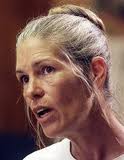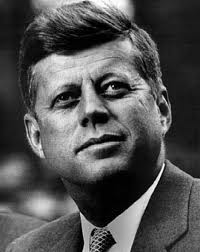January 25, 1971 – Charles Manson and three of his followers, Susan Atkins, Patricia Krenwinkle, and Leslie van Houton , are found guilty of all 27 separate counts against them, including 7 counts of murder. The trial had begun on June 15, 1970 and captivated America as prosecutor Vincent Bugliosi systematically laid out the case that was too bizarre to have been imagined. Manson, an aspiring songwriter and petty criminal, who had spent half of his life in prison, formed his “family” of misfits first in San Francisco, and then Los Angeles. He somehow managed to exert amazing control over his followers, especially the young women who idolized him and obeyed his every whim. Manson creates a vision of race warfare that he must initiate through a series of murders and, in the end, seven innocent people, including pregnant actress Sharon Tate, died at his biding. The trial drug on for months and was chaotic and often interrupted by Manson. Members of his family not on trial, held vigil outside and maintained that “Charlie” was innocent and the victim of conspiracy and persecution. Meanwhile, those on trial seemed as though they could have been the girl next door with their innocent demeanor made all the more fascinating by their unquestioned loyalty to Manson. The details of the murders demonstrated a cold-blooded and callous attitude the many could not even begin to understand in a young woman. Their behavior was appalling, laughing at the hideous details of savage murder, unfeeling except for their devotion to Manson. Finally the jury returned guilty verdicts. Eventually they would be sentenced to death, but this was later commuted to life in prison when California’s death penalty was ruled unconstitutional. Manson survives to this day, unrepentant and seemingly insane, and hopefully destined for Hell itself.
 Susan Atkins died in prison in 2009. She had become a born again Christian and wrote her autobiography Child of Satan, Child of God. She allegedly developed brain cancer and eventually lost a leg and was paralyzed on one side. Her appeal for a compassionate release request was denied. During her parole hearing in 2000, Sharon Tate’s sister read a statement written by their father “….Thirty one years ago I sat in a courtroom with a jury and watched with others. I saw a young woman who giggled, snickered and shouted out insults, even while testifying about my daughter’s last breath, she laughed. My family was ripped apart. If Susan Atkins is released to rejoin her family, where is the justice?….” When she did die, her last words were “Amen”.
Susan Atkins died in prison in 2009. She had become a born again Christian and wrote her autobiography Child of Satan, Child of God. She allegedly developed brain cancer and eventually lost a leg and was paralyzed on one side. Her appeal for a compassionate release request was denied. During her parole hearing in 2000, Sharon Tate’s sister read a statement written by their father “….Thirty one years ago I sat in a courtroom with a jury and watched with others. I saw a young woman who giggled, snickered and shouted out insults, even while testifying about my daughter’s last breath, she laughed. My family was ripped apart. If Susan Atkins is released to rejoin her family, where is the justice?….” When she did die, her last words were “Amen”.
Patricia K renwinkel has been denied parole thirteen times despite model behavior, earning a bachelor degree, and being active in numerous prison programs attempting to help others. In a 1994 television interview she said “I wake up every day knowing that I’m a destroyer of the most precious thing, which is life; and I do that because that’s what I deserve, is to wake up every morning and know that.” She writes poetry, plays guitar and teaches illiterate prisoners to read. In 2004 she was asked at her parole hearing who she had hurt the most, she answered “Myself”. She remains the longest incarcerated woman in the California prison system. Her next parole hearing is scheduled for 2018.
renwinkel has been denied parole thirteen times despite model behavior, earning a bachelor degree, and being active in numerous prison programs attempting to help others. In a 1994 television interview she said “I wake up every day knowing that I’m a destroyer of the most precious thing, which is life; and I do that because that’s what I deserve, is to wake up every morning and know that.” She writes poetry, plays guitar and teaches illiterate prisoners to read. In 2004 she was asked at her parole hearing who she had hurt the most, she answered “Myself”. She remains the longest incarcerated woman in the California prison system. Her next parole hearing is scheduled for 2018.
 Leslie Van Houton was the youngest defendant and not present at Tate murders though she was involved in the later murder of the LaBiancas. She successfully won a retrial in 1977 which ended in a hung jury. She was briefly free on bond, but she was found guilty in her third trial and again sentenced to life in prison. Her prison life has been uneventful but she has been involved in a number of prison programs and is considered a model prisoner. In 2010 she was denied parole for the 19th time. Afterward Los Angeles Deputy District Attorney Patrick Sequoia said “The crime itself was absolutely horrendous — the brutal slaughter of two individuals in their home, in a cruel and very horrifying manner. It is our position that she never really has fully accepted responsibility for her crimes.” She will be eligible for another parole hearing in 2013.
Leslie Van Houton was the youngest defendant and not present at Tate murders though she was involved in the later murder of the LaBiancas. She successfully won a retrial in 1977 which ended in a hung jury. She was briefly free on bond, but she was found guilty in her third trial and again sentenced to life in prison. Her prison life has been uneventful but she has been involved in a number of prison programs and is considered a model prisoner. In 2010 she was denied parole for the 19th time. Afterward Los Angeles Deputy District Attorney Patrick Sequoia said “The crime itself was absolutely horrendous — the brutal slaughter of two individuals in their home, in a cruel and very horrifying manner. It is our position that she never really has fully accepted responsibility for her crimes.” She will be eligible for another parole hearing in 2013.





